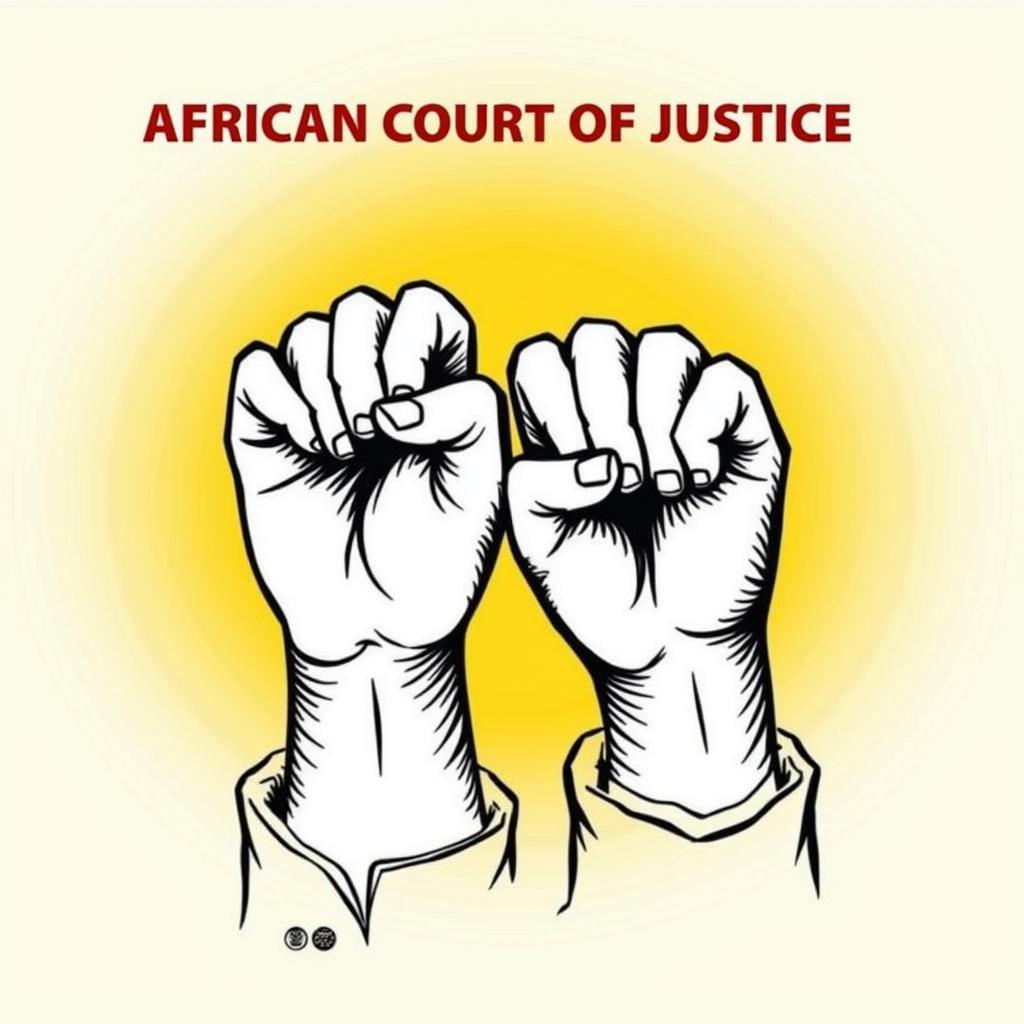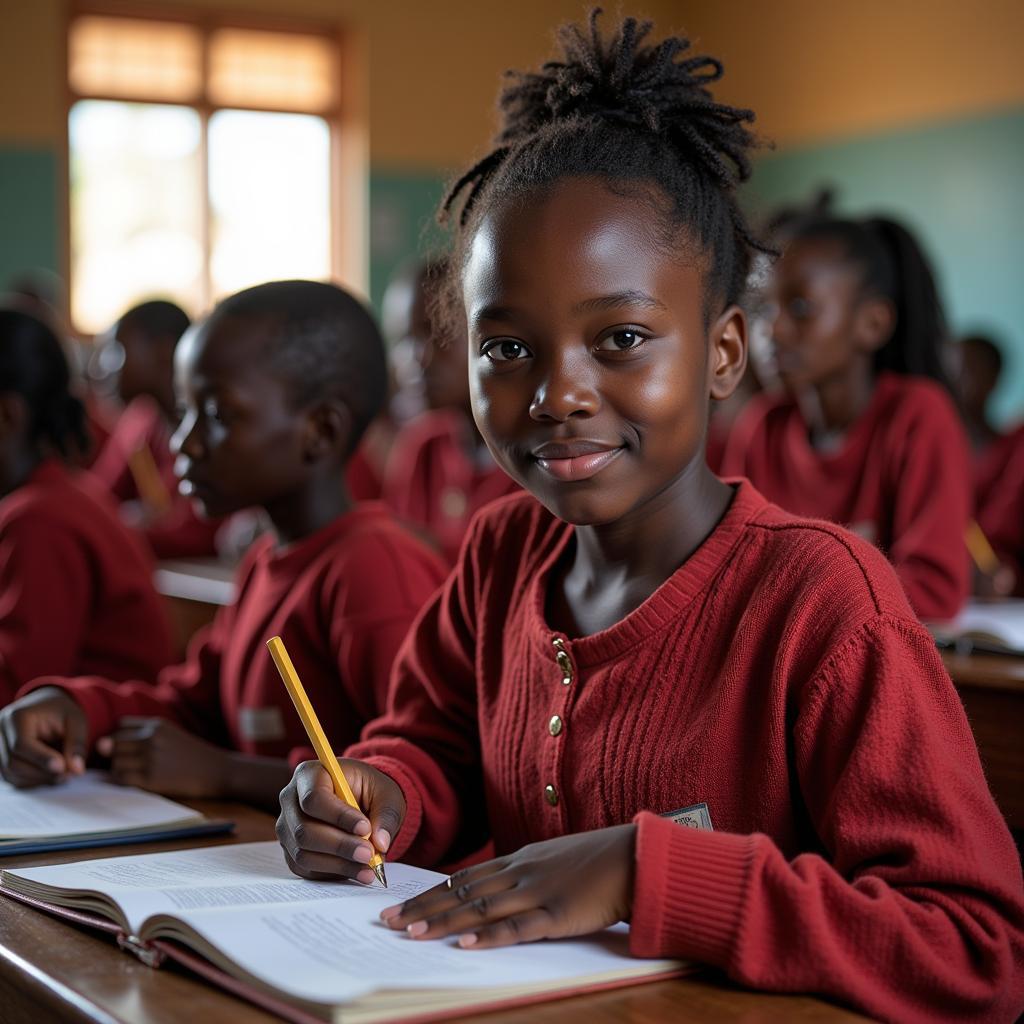The African Court of Justice and Human Rights: A Beacon of Hope
The African Court Of Justice And Human Rights stands as a testament to Africa’s commitment to upholding human rights and ensuring justice for all. Established in 1998, the Court plays a crucial role in adjudicating cases related to human rights violations across the continent.
A Legacy of Resilience: Navigating Challenges and Triumphs
The journey towards establishing a continental human rights court in Africa has been marked by both challenges and triumphs. The Court emerged from a long history of colonialism and authoritarian regimes, where human rights abuses were often rampant and unaddressed. The establishment of the African Charter on Human and Peoples’ Rights in 1981 was a pivotal step, laying the foundation for a regional human rights system. The African Court, headquartered in Arusha, Tanzania, embodies this vision.
Understanding the Court’s Jurisdiction and Mandate
The African Court has jurisdiction over a wide range of human rights violations, including:
- Civil and political rights: The Court hears cases related to the right to life, freedom from torture, freedom of expression, and fair trial guarantees.
- Economic, social, and cultural rights: The Court’s mandate extends to issues such as the right to health, education, and an adequate standard of living.
- Group rights: The Court has jurisdiction over violations of the rights of women, children, and other vulnerable groups.
The Court primarily exercises its jurisdiction through two main avenues:
- Complaints from States: Member states of the African Union can bring cases against other states for alleged violations of human rights obligations.
- Individual and NGO access: The African Court allows individuals and NGOs to file complaints directly, provided certain conditions are met, offering a vital avenue for seeking redress when domestic remedies are exhausted.
Strengthening Human Rights Protection: Key Achievements and Impact
The African Court has made significant strides in upholding human rights across Africa:
- Landmark Judgments: The Court has issued several landmark judgments that have set important precedents and advanced the protection of human rights. These judgments cover a wide range of issues, including the abolition of the death penalty, the rights of indigenous peoples, and the protection of environmental rights.
- Promoting Accountability: The Court’s rulings have helped to hold states accountable for human rights violations and have encouraged reforms in domestic legal systems.
- Raising Awareness: The Court’s work has played a crucial role in raising awareness of human rights issues and promoting a culture of respect for human dignity across the continent.
Addressing the Challenges: Ensuring Effectiveness and Accessibility
Despite its achievements, the African Court faces challenges that need to be addressed to enhance its effectiveness:
- Ratification and Domestication: A significant number of African Union member states are yet to ratify the protocol establishing the Court, limiting its reach and impact.
- Financial and logistical constraints: The Court’s operations are often hindered by limited financial resources and logistical challenges, impacting its ability to handle cases efficiently.
- Lack of Awareness: There is a need to raise awareness about the Court’s work among potential litigants, civil society organizations, and the general public to increase its accessibility.
The Path Forward: Collaboration and Continued Commitment
The future of human rights in Africa is intricately linked to the success of the African Court. By addressing the existing challenges and fostering collaboration among states, civil society, and international partners, the Court can fully realize its potential as a beacon of hope and a catalyst for positive change.
 The Future of the African Court of Justice
The Future of the African Court of Justice
Conclusion
The African Court of Justice and Human Rights represents a significant step towards building a more just and equitable Africa. As a beacon of hope for victims of human rights violations, the Court plays a vital role in promoting accountability, advancing the rule of law, and fostering a culture of respect for human dignity. By supporting the Court’s work and addressing the challenges it faces, we can contribute to building a brighter future for all Africans.
FAQ
What is the role of the African Court of Justice and Human Rights?
The African Court is a continental court that adjudicates cases related to human rights violations in Africa. It aims to uphold the rights enshrined in the African Charter on Human and Peoples’ Rights.
Who can file a case with the African Court?
Cases can be filed by African Union member states, individuals, and NGOs. Certain conditions must be met for individuals and NGOs to directly access the Court.
What are some of the major achievements of the African Court?
The Court has issued landmark judgments on issues like the death penalty, indigenous rights, and environmental protection, contributing to the development of human rights jurisprudence in Africa.
What are the challenges facing the African Court?
Challenges include limited ratification of the Court’s protocol by African states, financial and logistical constraints, and the need for increased awareness about its work.
How can I support the work of the African Court?
You can support the Court by raising awareness about its mandate, advocating for increased state cooperation, and supporting organizations working to promote human rights in Africa.
For inquiries about the African Court or legal assistance, please contact us at:
Phone: +255768904061
Email: kaka.mag@gmail.com
Address: Mbarali DC Mawindi, Kangaga, Tanzania
Our dedicated team is available 24/7 to assist you. You can find more information on related topics in our articles: African dating service, African animal ratel, African forest elephant classification.


